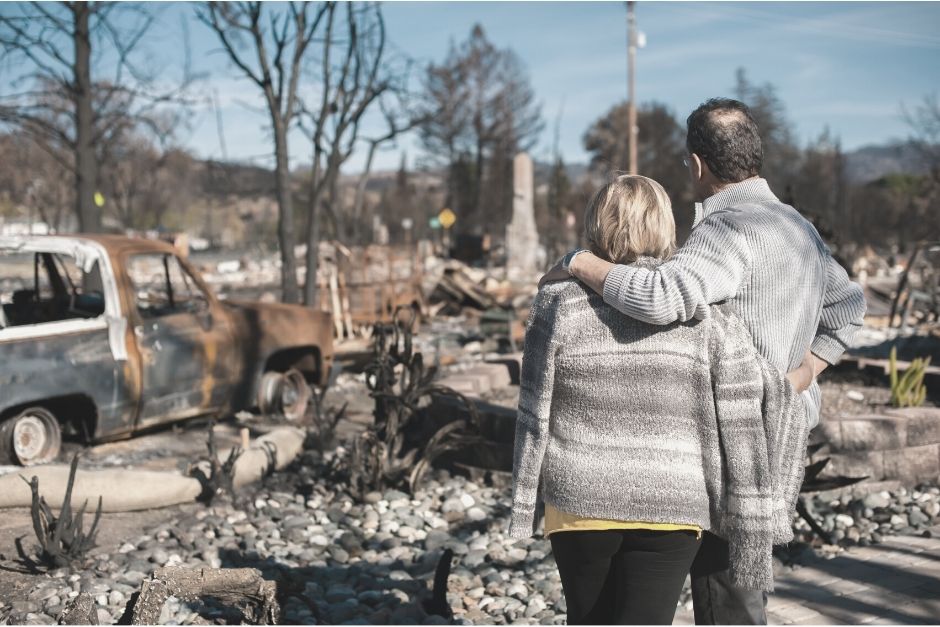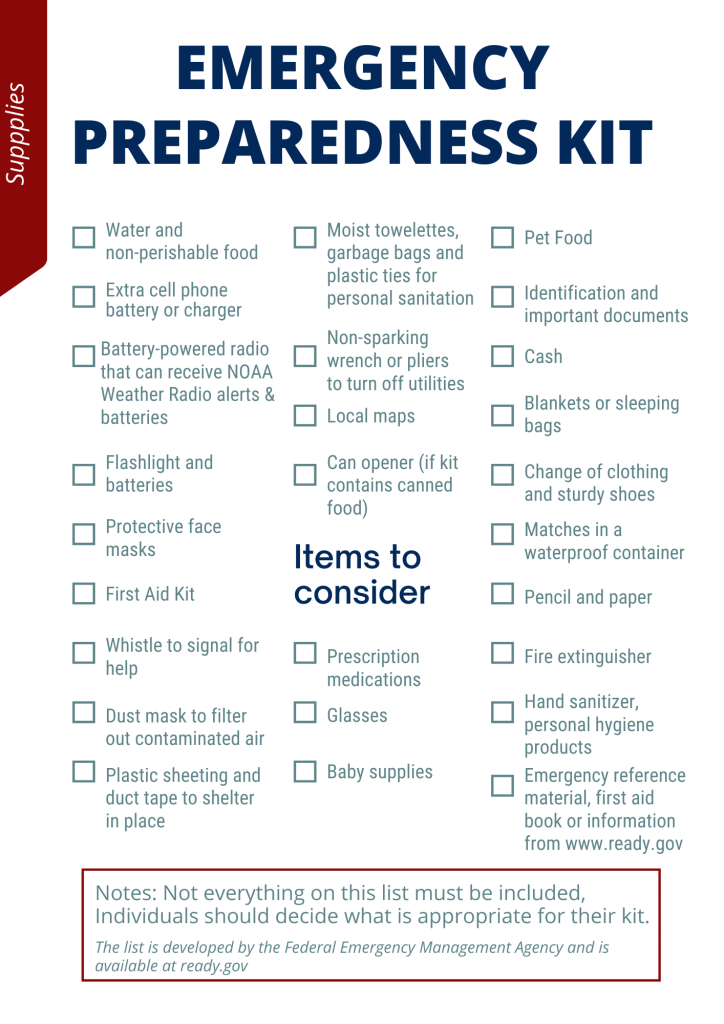September is National Preparedness Month and the perfect time for individuals, families and even communities to make plans to deal with an emergency at home, school, work or where we live. Each week of the month has a different focus to raise awareness about the importance and value of being prepared for the unexpected. Since the beginning of the pandemic, we’ve all experienced crises or disasters whether they were medical, financial, personal or natural. We’ve also seen how the impact of being prepared, or not, can make a difference in the outcomes of these events.
Here at TSS, our safety specialists are experts in understanding that a little preparation can go a long way to mitigating risk and avoiding catastrophe, so we encourage you to follow the National Preparedness month guide and take this time to ready yourself for a variety of emergency situations.
Preparedness Schedule 2021
Week 1 – Make a plan. Talk to your family, friends, and co-workers about how you will communicate to each other before, during and after a disaster/emergency. Make sure to update your plan regularly, especially during this time of Coronavirus
Week 2 – Build a kit. Gather supplies that will last for several days for everyone living in your home. Pay special attention to unique needs such as medicine, glasses, etc. And don’t forget your pets. Review and update the kits at least two times per year to ensure that all items are in good condition and relevant for the people you may need to supply.
Week 3 – Low cost, no cost preparedness. Limit the impacts to you and your family. Know the risks for your area and make sure your insurance is appropriate. Make your home stronger and more resilient in storms or earthquakes. Act fast when you receive an alert of impending danger.
Week 4 – Teach youth about preparedness. Teach your kids about what to do if you are separated. Reassure them by allowing them to participate in preparing for disasters. Provide information about how to protect themselves at school, on the bus or in the community. PLAN for a place to meet so they know where to go. Who would be their second point of contact if they cannot find their parents?
To learn more about National Preparedness Month, visit ready.gov. Safety begins with knowledge. Let’s start learning!


